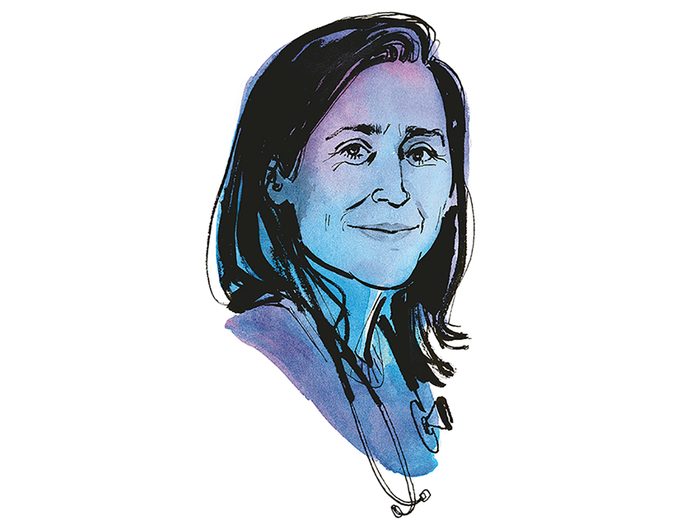Are Canada’s Euthanasia Laws Effective?

We quiz Stefanie Green, author of This Is Assisted Dying.
Reader’s Digest Canada: After more than 20 years delivering babies, you switched to performing assisted deaths. How come?
Stefanie Green: I’ve always been interested in the intersection of medicine, ethics and law. Working in maternity care, I was able to engage with those topics in terms of women’s health and reproductive rights. Meanwhile, I was watching the evolution of assisted dying legislation in Canada. I started thinking, well, yes, the law might change, but who is going to do this very important work when it does?
You mention Canada’s decriminalization legislation. When and why did that happen?
In Canada we had some landmark cases that challenged the blanket prohibition of assisted dying as a violation of charter rights, and the Supreme Court agreed in a unanimous ruling. Bill C-14 was then introduced in 2016, creating a number of parameters regarding consent, capacity and the stipulation that to qualify for assisted dying, your natural death had to be “reasonably foreseeable.”
Which means what exactly?
Well, that was the issue. Does reasonably foreseeable mean weeks? Months? Years? What about people with conditions like ALS or Parkinson’s? I think the intention with that language was to give some leeway to clinicians, but it ended up being limiting because there was fear of the consequences—ethical and legal—over making the wrong call.
In March 2021, the government amended the assisted dying law, Bill C-7. What’s new?
Death no longer has to be “reasonably foreseeable,” which opens up assisted dying to a far larger group, including people with non-fatal, long-term chronic pain conditions. And C-7 introduced a waiver of consent, which means certain patients can enter into a written agreement that will remain valid even if the patient loses mental capacity before their scheduled death. This is a huge win. Probably the hardest moments of my career have been showing up to perform an assisted death and the patient has unexpectedly lost capacity because of pain medication or an advance in their condition. Saying no to their loved ones even though we know this was the patient’s wish has been heartbreaking.
How do the current laws on euthanasia in Canada address people with mental health issues?
For now, patients with an underlying mental health disorder cannot apply for assisted death if that disorder is their only underlying condition, but that restriction has an expiration date—which is a way of giving the government time to consider options. Most mental health issues by definition interfere with our mental state, so there is a significant concern about whether those patients will have the capacity to make this particular decision. That said, there is a difference between an irrational suicidal thought and a rational wish to end your life due to suffering, so the question is: how do you tease these two things apart? The government has assigned a task force of medical and legal professionals to make recommendations.
In your book you talk about the relief that people feel during their first appointment. Can you explain?
Most people shy away from talking about death, but in my work I use a script that is very frank. I say, okay, we’re going to talk about death. We’re going to talk about your death and assisted dying. Whether I end up helping them or not, there is so much gratitude just to be able to have these conversations. Not because they want to die, but because they want to have control and autonomy, which is so essential to a dignified death.
Check out Stefanie Green’s new book, This Is Assisted Dying.
For practical advice on getting your own affairs in order, consult our end of life planning guide.






